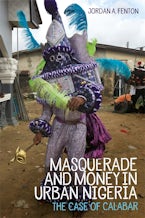
Title Details
240 Pages
22.8 x 15.2 cm
10 b/w, 3 line illus.
Series: Rochester Studies in African History and the Diaspora
Series Vol. Number:
35
Imprint: University of Rochester Press
The Urban Roots of Democracy and Political Violence in Zimbabwe
Harare and Highfield, 1940-1964
- Description
- Contents
- Reviews
A timely examination of African politics during the formative years of Zimbabwean nationalism.
The Urban Roots of Democracy and Political Violence in Zimbabwe details a democratic tradition developed in the 1940s and 1950s, and a movement that would fall victim to an increasingly elitist and divisive political culture by the 1960s. Providing biographical sketches of key personalities within the genealogy of nationalist politics, Timothy Scarnecchia weaves an intricate narrative that traces the trajectories of earlier democratic traditions inZimbabwe, including women's political movements, township organizations, and trade unions. This work suggests that intense rivalries for control of the nationalist leadership after 1960, the "sell-out" politics of that period, andCold War funding for rival groups contributed to a unique political impasse, ultimately resulting in the largely autocratic and violent political state today. The author further proposes that this recourse to political violence,"top-down" nationalism, and the abandonment of urban democratic traditions are all hallmarks of a particular type of nationalism equally unsustainable in Zimbabwe then as it is now.
Timothy Scarnecchia is assistant professor of African history at Kent State University in Kent, Ohio.
The Urban Roots of Democracy and Political Violence in Zimbabwe details a democratic tradition developed in the 1940s and 1950s, and a movement that would fall victim to an increasingly elitist and divisive political culture by the 1960s. Providing biographical sketches of key personalities within the genealogy of nationalist politics, Timothy Scarnecchia weaves an intricate narrative that traces the trajectories of earlier democratic traditions inZimbabwe, including women's political movements, township organizations, and trade unions. This work suggests that intense rivalries for control of the nationalist leadership after 1960, the "sell-out" politics of that period, andCold War funding for rival groups contributed to a unique political impasse, ultimately resulting in the largely autocratic and violent political state today. The author further proposes that this recourse to political violence,"top-down" nationalism, and the abandonment of urban democratic traditions are all hallmarks of a particular type of nationalism equally unsustainable in Zimbabwe then as it is now.
Timothy Scarnecchia is assistant professor of African history at Kent State University in Kent, Ohio.
Charles Mzingeli's Leadership and Imperial Working-Class Citizenship
Township Protest Politics
Resistance to the Urban Areas Act and Women's Political Influence
Changing Tactics: Youth League Politics and the End of Accommodation
The Early Sixties: Violent Protest and "Sellout" Politics
The "Imperialist Stooge" and New Levels of "Sellout" Political Violence
Township Protest Politics
Resistance to the Urban Areas Act and Women's Political Influence
Changing Tactics: Youth League Politics and the End of Accommodation
The Early Sixties: Violent Protest and "Sellout" Politics
The "Imperialist Stooge" and New Levels of "Sellout" Political Violence
"[An] original and intriguing book. [.] Scarnecchia skilfully moves his analysis between the local, national and international dimensions of the nationalist struggle in order to show how the deepening fault lines of class, gender and nation undermined the coherence of the nationalist movement and fuelled a politics of intimidation. In doing so he effectively undermines Zimbabwe's nationalist historiography of anticolonial triumph, and adds a valuable contribution to a growing revisionist historiography of African nationalism that seeks new explanations for the pernicious tendencies of African regimes." INTERNATIONAL JOURNAL OF AFRICAN HISTORICAL STUDIES
"Scarnecchia lays down a challenge to those who would have us believe that contemporary Zimbabwe was forged in the struggle between African nationalists and white supremacists. With painstaking research, Scarnecchia shows how the troubled politics of Zimbabwe have their roots in the African politics of the 1940s and beyond, when Africans were able to manipulate, and be manipulated by, the imperial retreat, decolonization, and Cold War rivalries. Scarnecchia recuperates the politics and struggles within the townships of Southern Rhodesia, where trade unionists and politicians, youth leagues and women's organizations, created democratic spaces for themselves, and, almost as often, deployed violence to destroy the populist spaces of their rivals." Luise White, professor of history, University of Florida
"Tim Scarnecchia's study of the urban roots of Zimbabwean nationalism offers an important and original exploration of the ways in which violence, generation, and gender shape political mobilization and political culture. He traces the carefully negotiated rise of demands for 'imperial citizenship' among working class men and women of the 1950s, and their displacement in the 1960s by violent politics in which the quest for power and loyalty placed the language of the sellout and young men center stage. This latter version of nationalism won out, and continues powerfully to shape Zimbabwe today." Jocelyn Alexander, University Lecturer in Commonwealth Studies, University of Oxford
"Scarnecchia's exploration of the roots of nationalist violence in Zimbabwe is an important and provocative work that is sure to incite debate, not least because of its salience for the current crisis in Zimbabwe." Gary Kynoch, AFRICAN HISTORY Volume 50, 2009
Paperback
9781580463638
August 2013
$29.95 / £24.99
Ebook (EPDF)
9781580467520
October 2008
$29.95 / £24.99
Title Details
240 Pages
2.28 x 1.52 cm
10 b/w, 3 line illus.
Series: Rochester Studies in African History and the Diaspora
Series Vol. Number:
35
Imprint: University of Rochester Press











